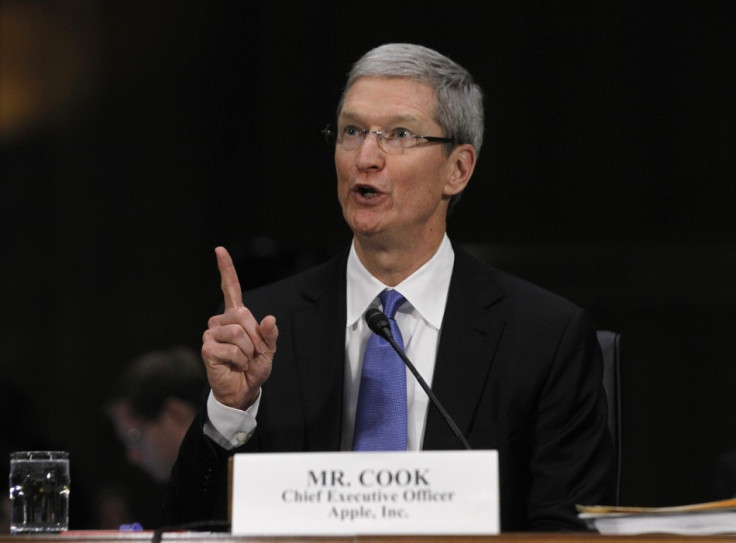Apple Calls for Cut in US Corporate Tax Rate
Apple has called for major changes to US corporation tax rates, even though the iPhone maker admits such changes would result in it paying more tax than it does now.

Speaking before a Senate subcommittee investigating multinational tax practices, Apple CEO Tim Cook warned Congress that he would refuse to repatriate $102bn (£68bn) of cash held by Apple in three Irish subsidiaries unless the US tax rate was substantially cut.
If returned to the US now, Apple would be charged the US corporate tax rate of 35% on its $102bn cash pile, and Cook said the money would not be repatriated unless the tax rate was reduced to persuade Apple and others in a similar position to return their money to the US.
"The rate of bringing back foreign earnings, [to incentivise] a huge number of companies, would have to be a single-digit number," Cook said. "By doing that, we would wind up in a revenue-neutral area. Some companies would pay more; we would be one of them."
Apple paid $6bn in US corporation tax last year - the highest of any US company, Cook claimed - and is forecast to pay $7bn in tax for the current financial year.
No current plans
Meanwhile, Cook believes the standard tax rate for profits made by US companies domestically should also be lowered from 35%, to the "mid 20s."
The Apple boss said he has "no current plan" to repatriate the money at the US's current rates. "Unlike some technology companies, I am not proposing a zero rate," Cook said. "My proposal is that we have a reasonable tax for bringing back money from overseas. A permanent change is materially better than a short term tax holiday."
Cook was called to testify before Congress as Apple is accused of using a "complex web" of offshore bank accounts and subsidiary companies to bypass the high US corporate tax rate. The Apple boss explained how his company has not broken any laws and pays the correct tax in every company it operates.
Profits made by Apple outside of the US are channeled through the three Irish subsidiaries; Cook also revealed that the company struck a "tax incentive arrangement" with the Irish government in 1980 limiting its domestic taxes there to 2%. Irish deputy prime minister Eamon Gilmore said this week that his government is not to blame for Apple's avoidance of US tax.
"They are not issues that arise from the Irish taxation system," Gilmore told national broadcaster RTE. "They are issues that arise from the taxation systems in other jurisdictions and that is an issue that has to be addressed first of all in those jurisdictions."
Changes to IP system
During his testimony, Cook took the opportunity to raise another issue Apple has with the US - its intellectual property law.
When asked by Senator Kelly Ayotte about the IP benefits of running a company in the US versus other countries, Cook said the US system could do with some improvement.
"I actually think that we require much more work on IP in this country. The US court system is currently structured in such a way that it's currently difficult to get the protections a technology company needs, because the cycle is very long."
© Copyright IBTimes 2025. All rights reserved.





















